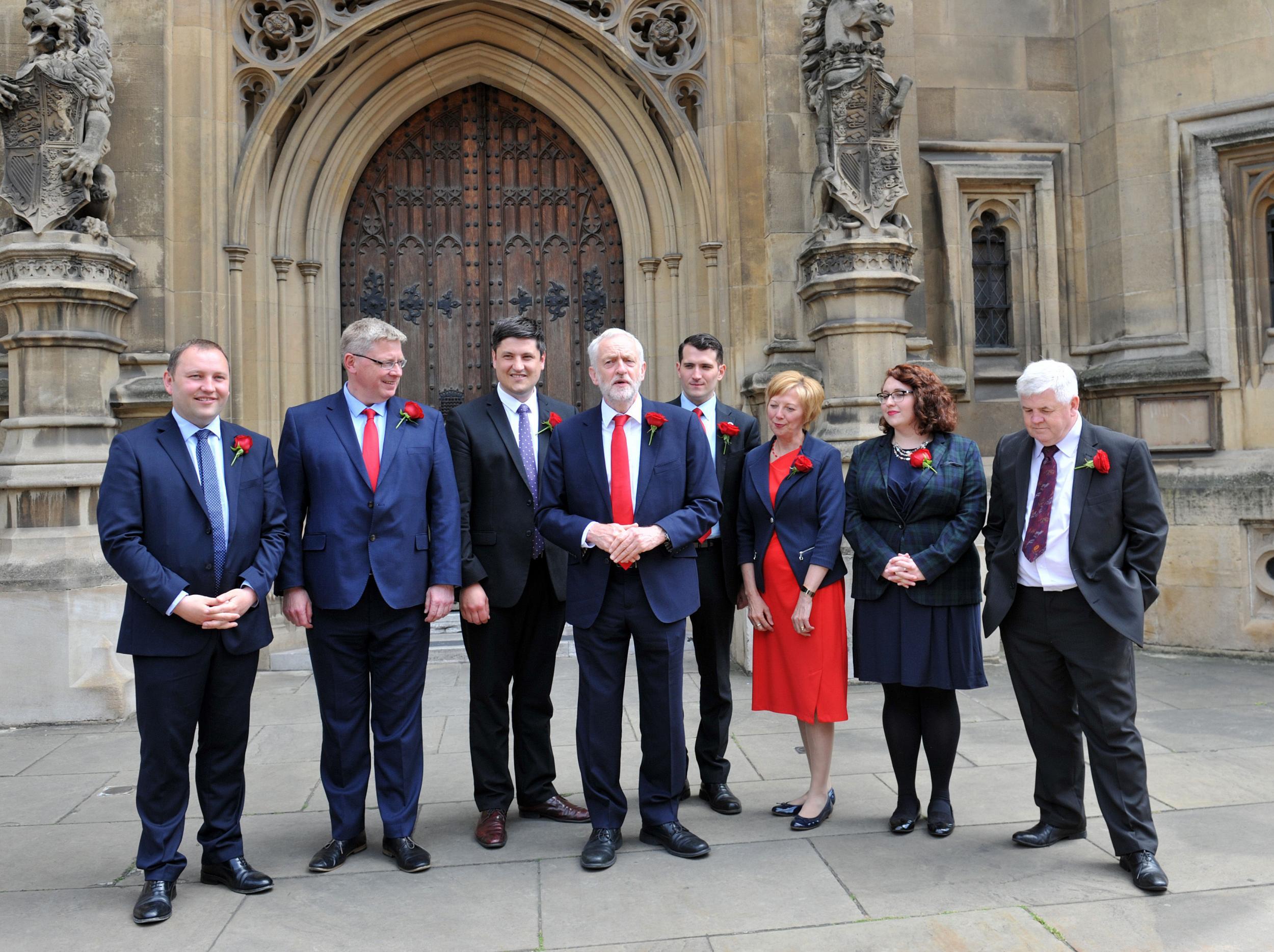This is how Labour can win the next general election
How can we retain that enthusiasm and genuine re-energisation that came from the general election without self delusion?


Your support helps us to tell the story
From reproductive rights to climate change to Big Tech, The Independent is on the ground when the story is developing. Whether it's investigating the financials of Elon Musk's pro-Trump PAC or producing our latest documentary, 'The A Word', which shines a light on the American women fighting for reproductive rights, we know how important it is to parse out the facts from the messaging.
At such a critical moment in US history, we need reporters on the ground. Your donation allows us to keep sending journalists to speak to both sides of the story.
The Independent is trusted by Americans across the entire political spectrum. And unlike many other quality news outlets, we choose not to lock Americans out of our reporting and analysis with paywalls. We believe quality journalism should be available to everyone, paid for by those who can afford it.
Your support makes all the difference.One of the most popular stories of late was Labour’s increasing share of the popular vote in the 8 June general election. Genuine surprise and, from many, real euphoria. But what is behind this and what does it tell us?
The most embraced and, it would seem obvious, solution is that Jeremy Corbyn is a great deal better at campaigning than many of his critics gave him credit for. Clearly, there can be no doubt that the massive upsurge in voting by the under 30s was profoundly significant. Mobilising those who had been substantially the victims of austerity to bother to vote was a long overdue and creditable achievement which, if sustained, would have profound implications for British politics.
As someone who was responsible for introducing citizenship education into the national curriculum, this can only be comfort and relief to me. However, many schools either fail to teach citizenship and democracy, or teach it badly.
But to fully understand what steps we now need to take to win the 64 seats that would give an overall majority of one to a future Labour government, we have to dig a bit deeper.
The turnout in this general election had not been equalled since 1992. That’s when Labour lost, albeit narrowly, to John Major’s Conservative government. Labour’s percentage of the vote that time was a full 5.5 percentage points less than on 8 June this year. But Labour won 271 as opposed to 262 seats.
Understanding how the electoral system works may be very boring, but it’s necessary if we are all to pull together – enthusiastic Corbynistas and old farts alike – to win the real prize; not just a glorious defeat but a glorious victory.
Back in 1992 (25 years ago) the Liberal Democrats, newly formed from the breakaway Social Democratic Party and the old liberals, got almost 23 per cent of the vote. In 2017 they got just over seven per cent.
And here is the irony. When the Liberal Democrats take votes from the Tories, Labour’s chances of winning increase!
Where, as in the 8 June vote, virtually all anti-Tory votes outside Scotland and Northern Ireland are mopped up by Labour, we accumulate as we did, almost 13 million votes and a 40 per cent proportion of the turnout – but end up 56 seats behind the Tories and 64 seats short of a majority.
In 1987 when I was elected for the first time with a whacking majority of over 24,000, Labour lost heavily. Yes, we went up 20 seats (as opposed to the 30 net gain this time) but we were way short of any chance of winning. This, despite what everyone saw as a very good campaign.
And the difference? Margaret Thatcher, who was in many parts of the country deeply unpopular – bordering on hatred – did not mess up. This time, Theresa May did. The effort to make this a presidential contest and to place herself at the very centre, failed.
In other words, as far as the electorate as a whole is concerned, there was a rejection of personality politics, and the hubris and arrogance which went with it.
At the same time, Jeremy Corbyn, who for some evoked the cult of personality, ran a much more collaborative and team-based campaign. Candidates for Labour campaigned as local representatives, giving a voice to the people of their area whilst the national manifesto inspired many people to believe in hope rather than in despair, to believe that there could be a better tomorrow rather than continued austerity.
It was, in my view, the anti-austerity stance of Jeremy Corbyn, coupled with the mobilisation and motivation of young people, which was so important in offering a very clear alternative to the depressing and miserable prospect of a landslide and a rampant Tory government.
This of course has to be seen within the context of Brexit. For many young people and those who voted to stay in, xenophobic, narrow-minded and inward looking conservatism was not only off-putting but a rejection of the internationalism and vision of a future which they sought.
Paradoxically, that does leave Labour with a challenge. Not only to maintain the fervour and motivation in what might be a full five years of grinding opposition but also to provide answers to some of the questions which really did not emerge during this general election.
How do we, as an individual nation, counterweight the global forces which constitute the real power of decision-making across the world? How do we join with others and create new forms of political non-violent action, which provides a voice for the consumer and mobilises political energy in being able to embrace the reality of globalisation, on the one hand (if we are internationalists), and at the same time provide a bulwark and an alternative power base to those with their hands on wealth and decision-making? This applies as much in the digital arena, from crypto anarchists on the one hand and global billionaires on the other, as it does to those in financial institutions and big global corporations.
How do we face the undoubted rapidity of change which will come from both continuing people movements (displaced by war and conflict or seeking a better economic life) without the self-destructive policies of Fortress Britain, or Fortress Europe?
What is Britain’s place in the world post Brexit, whatever form that takes, and what is the social democratic answer to some of the very major challenges ranging from an ageing population on the one hand and the impact of technology digitalisation on the other?
The impact on jobs, our lifestyle, on the nature of our working life and longevity are all questions which were, in effect, sidelined in the general election. They are not going to go away!
Above all, how can we retain that enthusiasm and genuine re-energisation that came from the general election without self-delusion?
As illustrated above, when you revert effectively, in England and Wales at least, to a two-party system, and Labour maximises the anti-Tory vote, how do you then move from an uplifting vote for Labour and a catastrophic defeat for the Conservatives, to the real world of a win for Labour and all but terminal defeat for the Conservatives? Twenty years ago in 1997 when I first entered Cabinet, Labour had 418 seats and a majority of 179. Again, we had just over 40 per cent of the popular vote. Unlike 2017, the Conservative vote had collapsed and Labour won seats across the whole of the south of England in a way not seen for generations.
That, if we are to replicate it, will mean (hold your breath) winning substantial Tory votes and many Tory abstentions. How we move from where we are, to where we want to be, is the question for the future.
Lord Blunkett is a former Labour Cabinet minister and was MP for Sheffield Brightside and Hillsborough until 2015. A version of this article originally appeared in The London Economic
Join our commenting forum
Join thought-provoking conversations, follow other Independent readers and see their replies
Comments